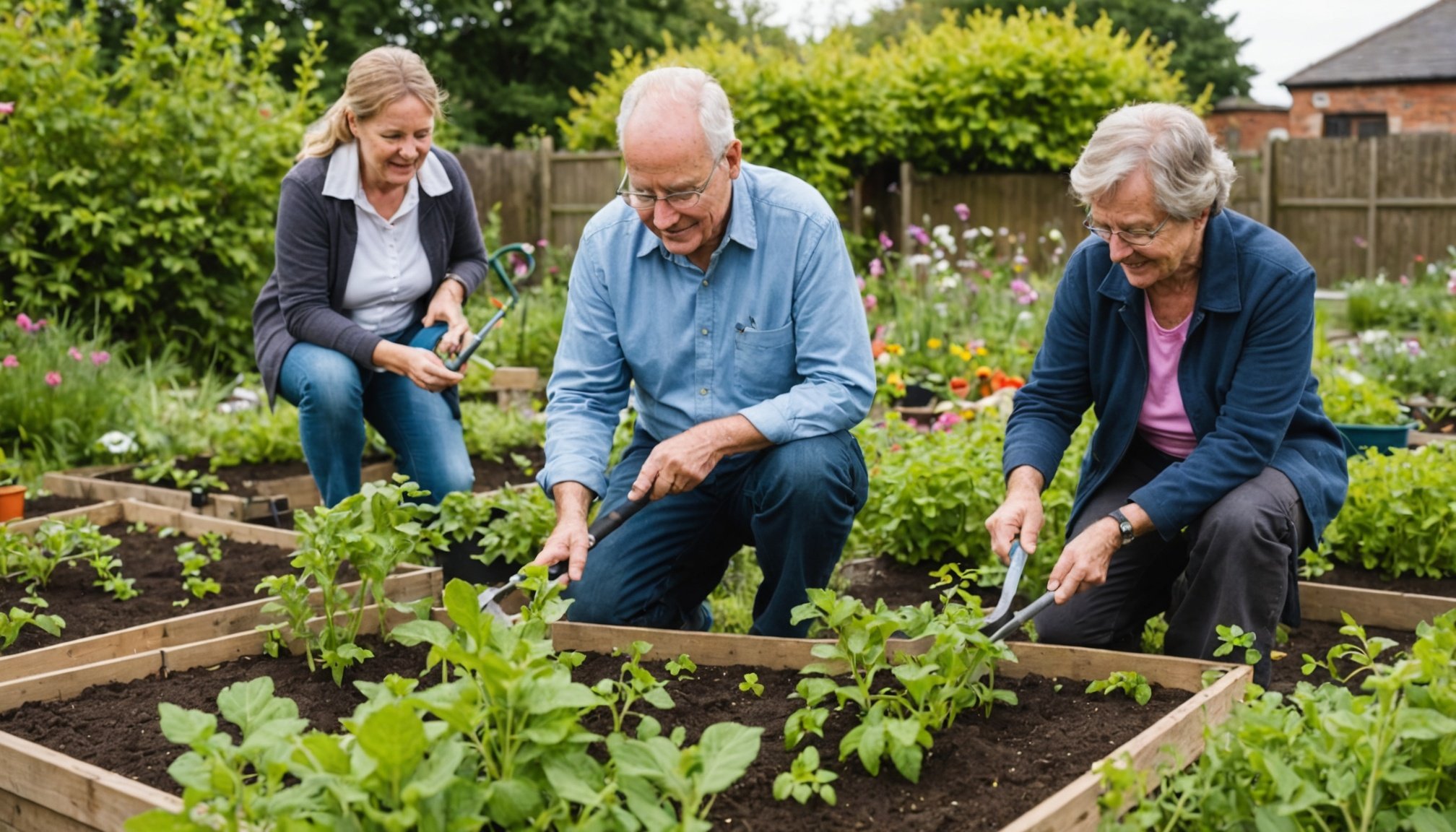Community gardening is more than just a weekend pastime; it is a powerful, therapeutic activity that connects individuals with nature and their community. As urban landscapes continue to expand, the importance of reclaiming green spaces within cities is growing clearer. But what makes community gardens so essential? Why are scholars and health professionals advocating for more of these shared spaces?
In this article, we explore the vital role community gardening plays in enhancing mental health and general well-being. Discover how these vibrant, green sanctuaries offer more than just a place to grow plants; they nurture social bonds, provide physical exercise, and offer a reprieve from the stresses of daily life.
Also read : Exploring Innovative Therapies for Overcoming Drug-Resistant Tuberculosis
Nurturing Mental Health Through Community Gardening
Community gardens are not only a source of fresh produce; they are crucial for fostering mental health. Studies have consistently shown a positive link between gardening and reduced levels of stress and anxiety. When you plant, tend, and harvest, you engage in a form of therapy that is as soothing as it is rewarding.
Spending time in the garden offers a unique opportunity to disconnect from the fast-paced digital world, providing a natural setting to clear your mind. The repetitive actions of gardening, such as digging and watering, can become a meditative practice, encouraging you to focus on the present moment.
Also to discover : Unlocking the Power of Herbal Supplements: Proven Benefits for Boosting Your Immune System
Moreover, the social aspect of community gardening cannot be overstated. Working alongside fellow gardeners fosters a sense of belonging and reduces feelings of loneliness. Whether you’re sharing tips on the best soil mix or celebrating a bountiful harvest, these interactions build relationships and improve mental well-being.
Scholar studies emphasize that community gardens also promote a sense of achievement and purpose. The act of nurturing plants from seed to maturity provides a tangible sense of accomplishment, boosting self-esteem and confidence. This empowerment can significantly enhance mental resilience, making it easier to face life’s challenges.
Enhancing Physical Well-being Through Gardening Activities
Gardening is a full-body workout that offers numerous physical health benefits. While it may not seem as intense as a gym session, the physical exertion involved in activities like digging, planting, and weeding can significantly improve your fitness levels.
Engaging in regular gardening activities ensures that you are moving your body, which is essential for maintaining physical health. This modest exercise can help combat the sedentary lifestyle that many of us have adopted, especially in urban environments.
Additionally, gardening exposes you to sunlight, providing a natural source of vitamin D. This vitamin is crucial for maintaining healthy bones and a robust immune system. Furthermore, spending time outdoors can lead to improved sleep patterns, which are essential for overall well-being.
Community gardening also encourages healthy eating habits. The fruits and vegetables you grow are rich in nutrients and free from harmful pesticides, providing a fresh, organic source of food. By prioritizing homegrown produce, you contribute positively to your physical health and that of your community.
Building Stronger Communities Through Shared Gardening Spaces
The beauty of community gardens lies in their ability to bring people together. In urban settings, where individuals often lead isolated lives, these green spaces serve as communal hubs that foster social interaction and cohesion.
By participating in a community garden, you become part of a group with a shared goal: to cultivate and care for a thriving space. This collective endeavor encourages teamwork and cooperation, as members work together to overcome challenges and celebrate successes.
Community gardens also promote inclusivity. They provide a space for individuals of all ages and backgrounds to come together, share their knowledge, and learn from one another. This exchange of ideas and experiences enriches the community, creating a diverse and supportive environment.
Moreover, these gardens play a vital role in urban landscapes by transforming underutilized areas into lively, productive spaces. They can reduce crime rates by creating a sense of ownership and pride within the community. As more people invest their time and energy into these shared spaces, neighborhoods become safer and more vibrant.
The Scholarly Perspective on Community Gardens and Well-being
Extensive research has delved into the relationship between community gardens and overall well-being. Scholars have identified various mechanisms through which these gardens benefit mental and physical health, providing a wealth of evidence supporting their expansion in urban areas.
According to studies, community gardens significantly contribute to reducing urban stress levels, offering a sanctuary from the hustle and bustle of city life. By engaging in gardening, individuals can experience a decrease in cortisol levels, a hormone associated with stress.
The academic community also highlights the educational aspect of community gardens. They provide a platform for learning about sustainable practices, biodiversity, and food security. This knowledge empowers individuals to make informed choices about their health and lifestyle.
Furthermore, scholars emphasize the interdisciplinary nature of community garden studies, incorporating insights from fields such as environmental science, psychology, and sociology. This holistic approach helps uncover the multifaceted benefits these spaces offer, paving the way for innovative solutions to urban challenges.
Community gardening is a powerful antidote to the challenges posed by urbanization. These green oases offer a plethora of benefits, enhancing mental health, physical well-being, and social cohesion. They serve as essential tools for scholars and health experts aiming to improve urban living conditions.
By embracing community gardening, you not only nurture the environment but also your own well-being. These gardens transform barren urban landscapes into thriving ecosystems, fostering a sense of belonging and purpose. Whether you’re an experienced gardener or a curious newcomer, the opportunity to connect with nature and your community awaits. Explore the transformative power of community gardening and contribute to a healthier, more vibrant world.











